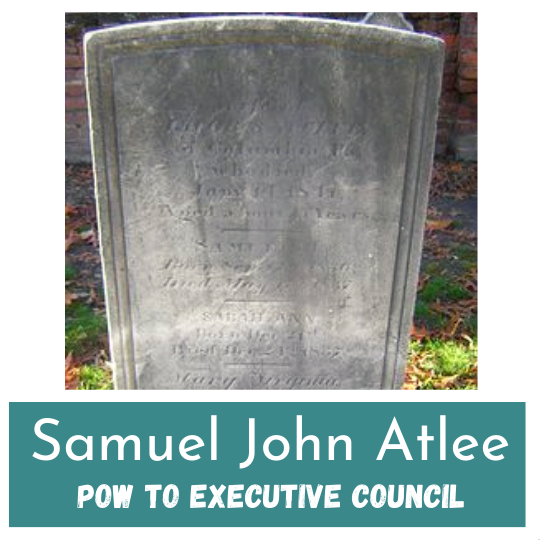James Duane was a Signer of the Continental Association and Articles of Confederation.
Federal Farmer XIII - Federal Districts
In Federal Farmer XIII an Anti-Federalist closes out his series of Observations with a lengthy discussion of the dangers of a Federal City.
William Hemsley Flips On Coinage
William Hemsley spent two years serving in the Continental Congress where he played a notable role in the debates on coinage.
John Hoskins Stone Gets Shot...Again
John Hoskins Stone was a decorated Officer in the Continental Army who was twice forced to tender his resignation due to wounds sustained in battle.
Joseph Hewes Builds America's First Navy
Joseph Hewes was Chairman of the Continental Congress’ Marine Committee created the Continental Navy.
Nicholas Low Clears His Family's Name
Nicholas Low attempted to stay neutral during the American Revolution (as his brother was a Loyalist) but played an important role as a bookkeeper for Rufus King.
Richard Bayley Survives the NYC Doctors Riots
Dr. Richard Bayley may have been a Loyalist, but his contributions to medicine in post-war New York City was critical to the American Founding.
Jonathan Trumbull's Choice
As the American Revolution began, the colonial governors dissolved their assemblies. With one important exception…
Thanking Anti-Federalists on Constitution Day
The Anti-Federalists played a larger role in framing the Government of the United States than most people realize.
The Captivity and Torture of a Patriot Spy - The Thomas Pool Story
Thomas Pool was a spy for the Continental Army who was found out and suffered torture as a result.
The Death of Intelligence - Thomas Knowlton's Rangers
Thomas Knowlton was the first man charged with gathering intelligence in an official capacity for the Continental Army.
Henry Cruger Fights For The Patriots Within Parliament's Walls
Henry Cruger, Jr. was the only colonist to be both a member of Parliament and a State Senator.
Dr. Benjamin Rush - The Founder of American Psychiatry
Benjamin Rush was a Physician who first recognized mental illness as a disease and signed the Declaration of Independence.
Philip Pell and the End of the Articles of Confederation
Philip Pell was the only Continental Congressman to attend the last meeting before the Constitution went into effect.
Cyrus Griffin Dissolves The Government
Cyrus Griffin was the last person to hold this position and oversaw the discussions which ceded power from the Articles of Confederation to the Constitution.
Federal Farmer XII - Electing Representatives
In Federal Farmer XII, an Anti-Federalist author discusses the mode of elections under the US Constitution.
The First Postmaster General - Samuel Osgood
Samuel Osgood was the first Postmaster General of the United States.
Purveyor General of Hospitals Nathan Brownson
Nathan Brownson was Purveyor General of Hospitals during the American Revolution and then Governor of Georgia.
Samuel John Atlee Goes From POW To Continental Congressman
Samuel John Atlee survived imprisonment by the British only to become a member of the Continental Congress and leader in Pennsylvania politics.
Dueling a President - Waightsell Avery's Frontier Bacon
Waightsell Avery fought in the Revolutionary War and was the first Attorney General of North Carolina.



















